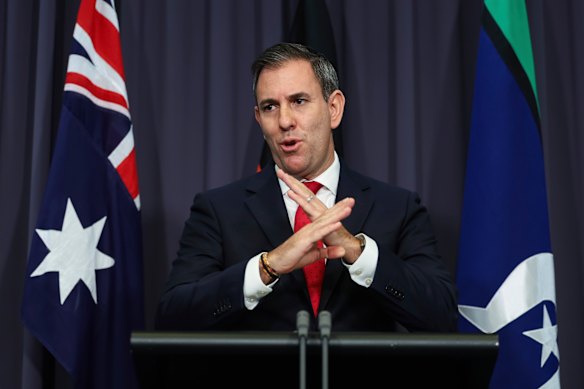
Jim Chalmers, Australia’s Treasurer, has responded firmly to critics of the government’s upcoming economic roundtable, asserting that the three-day meeting will be a significant step toward enhancing the living standards of Australians. Scheduled to commence on March 5, 2024, the forum aims to explore vital issues affecting the nation’s economy, despite skepticism regarding its potential effectiveness.
The roundtable will address a range of topics, including regulatory barriers to housing development, the structure of the tax system, and the recognition of occupational licenses across state and territory lines. Chalmers emphasized that this initiative represents the beginning of a comprehensive three-year strategy focused on increasing productivity, rather than seeking immediate policy outcomes.
Critics, particularly from the Coalition, have suggested that the roundtable may devolve into a mere talkfest, failing to produce actionable policies to tackle the ongoing slowdown in productivity growth. In response, Chalmers highlighted the extensive preparatory work undertaken, claiming it to be “the most intensive period of consultation” he has experienced.
“I feel the effort we’ve put in… is already worth it,” he stated. “You shouldn’t anticipate that we will have every problem solved in the economy at the end of three days of fruitful discussions, but it will be a really important way to inform the decisions of the cabinet.”
Chalmers’ remarks come as the Greens party has pledged to utilize their balance of power in the Senate to advocate for progressive reforms stemming from the discussions. This juxtaposition underscores the varying perspectives on the roundtable’s potential impact on Australian policy.
While the government has ruled out major tax reforms, particularly in contentious areas such as the Goods and Services Tax (GST) and negative gearing, the emphasis remains on fostering a collaborative environment to identify solutions for pressing economic challenges.
Prime Minister Anthony Albanese and Chalmers have occasionally conveyed differing messages, leading to speculation about their respective approaches to reform. Nonetheless, both leaders maintain a unified front in prioritizing discussions that could shape the future of the Australian economy.
As the roundtable approaches, attention will be closely monitored to assess whether it will translate into tangible outcomes that address the pressing economic issues facing the nation.







